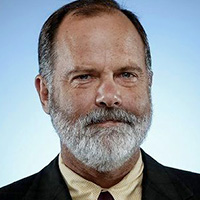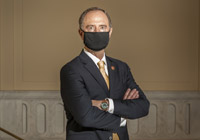America has changed, three times over, since the beginning of 2020. When the coronavirus swept across the world at the beginning of the year, it spared no place; it did not observe travel bans or national boundaries. Only hygiene and distancing slowed its destructive swath, and the United States haltingly and unevenly accepted those realities. By fall, this nation was suffering from COVID-19 more acutely than any other developed country, and the death toll pushed past 200,000, nearly four times as many Americans as died in Vietnam.
That calamity gave rise to a second: the collapse of the American economy. Gross domestic product plummeted by more than 30% in the second quarter. Millions of jobs were lost; countless businesses shuttered, many forever.
And then, amid fear of disease and the realities of unemployment and stress, the nation revisited its most difficult and unfinished debate: race relations. Spurred by the killing of George Floyd at the hands of Minneapolis police on May 25, Americans yet again gazed in fury at one more video of officers pressing their force against a Black man, in this case pinning his neck to the pavement with a knee as he pleaded for help. “I can’t breathe!” became the cry of a renewed call for racial justice; and protests, overwhelmingly peaceful though occasionally violent, erupted across the country.
America has weathered many crises. It has fought wars, including a Civil War, and faced ravaging epidemics and economic disruptions. It is not true that the country has never been more divided, or that these challenges are unprecedented. But they are intensely demanding, nonetheless. Rarely, if ever, have three such urgent traumas arrived together — and in an election year, no less.
This issue of Blueprint examines how these events are affecting Americans and values they consider very important — their families, communities, shelter, safety and politics. How do we help one another in a time of division and uncertainty? How do we safeguard children who are at risk, unable to protect themselves, sometimes from their own parents, when normal access to help is shut down? How do we select leaders when human interaction in politics is limited, beginning to end: from rallies to the polls? And how do we fend off danger when those charged with securing our safety — the police — are no longer trusted by many whose lives they are responsible for defending?
These are fraught times, days when the pillars of society seem unable to support much of what it means to be an American. As the Democratic and Republican national conventions played out this summer, it was difficult to believe that both were addressed to the same America, so diver- gent were their views of our country.
Yet the fundamentals — family and community, a place to live and a job to do — transcend party and ideology. They give meaning not just to America but to life itself. Such values must survive, no matter the condition of the Republic or who leads it. Managing our crises, explored in this issue of Blueprint — our 12th and biggest ever — is centered around the exploration and preservation of our values, both at UCLA and beyond. That is noble work, and badly needed.
JIM NEWTON
Editor-in-chief
A NOTE ON STYLE With this issue, Blueprint has adopted several style changes to acknowledge evolving standards of identification. We now use Latina/o to identify those of Hispanic descent, though individual subjects and sources may opt for Latino or Latina. We capitalize Black and White to refer to people of those ethnicities. We considered capitalizing Black but not White, as some publications have, but were persuaded by the value of consistency and the insight of the Center for the Study of Social Policy, which, among others, argues that failing to “name ‘White’ as a race … frames Whiteness as both neutral and the standard.”
























